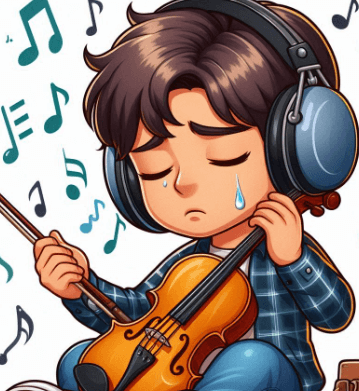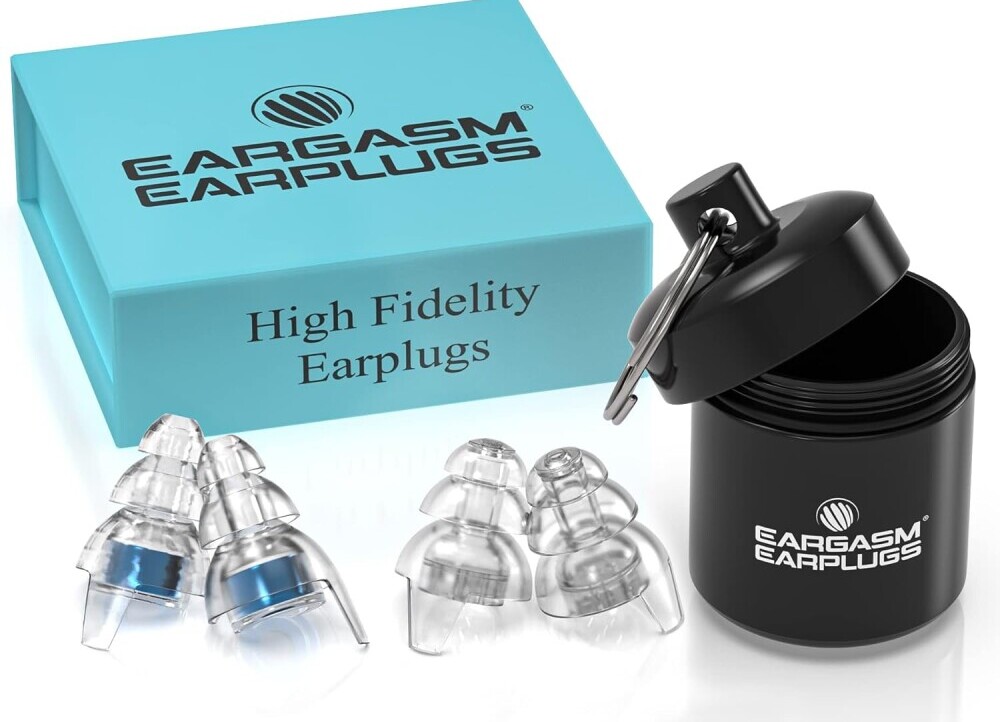Musicians live in a world dominated by sound, forming deep emotional connections with music that reverberate through their lives. But with all that sound, there’s the question, is hearing loss something musicians frequently face? Many might think it’s a risk that comes with the gig, and there’s some truth to it.
Constant exposure to high decibels is no joke. It’s like being next to a roaring jet engine every time you’re jamming out to a loud set. Studies have shown that prolonged exposure to sounds over 85 decibels, like what’s encountered at concerts and rehearsals, can lead to hearing damage over time. It’s a real hazard of the trade.
Recent stories have brought this issue into the spotlight.
For instance, a major study published by the Norwegian University of Science and Technology highlighted how professional musicians are nearly four times more likely to develop hearing loss compared to others. The risk factor is undeniable, but it’s only one piece of the puzzle.
To understand the scope of this issue, we need solid resources and research. The Hearing Health Foundation has some comprehensive guides and papers specifically about musicians and hearing loss. Their research sheds light on just how widespread the problem is and offers guidance for mitigating the risks.
Knowing the factors and recent findings can offer a good first step toward protecting hearing in the music industry.
It’s more about awareness and making informed choices that could keep the tunes playing for years without the risk of hearing loss holding any musician back.
Shocking Statistics: The Link Between Musicians and Hearing Loss
Numbers don’t lie, and they paint quite a stark picture when it comes to hearing loss among musicians. Some might shrug and think it’s part and parcel of the lifestyle, but the statistics suggest a more concerning trend.

Recent studies indicate that professional musicians are nearly four times more likely to suffer from hearing loss compared to the average person. That’s a pretty massive gap that highlights the unique challenges musicians face due to their profession.
The prevalence isn’t just confined to classical or rock genres either. Across the board, from jazz to electronic music, stats indicate similar levels of risk. That loud bass at a rave or those blaring trumpets in an orchestral pit—both contribute to the risk.
Absolute numbers are equally eye-opening. It’s estimated that around 30-50% of musicians experience some form of hearing loss during their careers. That’s a lot of folks needing to rethink their approach to their craft to preserve their hearing.
These stats aren’t just there to shock but to inform and encourage proactive strategies. Hearing conservation programs specifically for musicians are growing in popularity, offering tools and tips tailored to their needs.
By understanding these numbers and trends, musicians can make informed decisions about protective measures that can safeguard their hearing for the long haul. Protecting your ears so you can keep making music is a vital part of being a professional.
Recommended Reading: What Are Some Medical Treatments For Hearing Loss
Famous Musicians Dealing with Hearing Loss
Hearing loss doesn’t discriminate—not even if you’re a mega music star.
Some of the biggest names in the industry have faced this challenge head-on, showing that it’s not just a distant worry but a reality with real career implications.
Take the rock icon Pete Townshend from The Who. He’s been vocal about how his love for loud music damaged his hearing over time. His honesty has sparked conversations about the importance of protecting one’s ears in the industry.
Then there’s Eric Clapton, whose music has touched millions, now openly talks about his struggles with tinnitus and hearing loss. These personal accounts remind us that even legends aren’t immune to hearing issues.
Another poignant example is Brian Wilson from The Beach Boys. His hearing loss in one ear didn’t stop him from creating timeless music, proving that adaptability and perseverance can still lead to success despite challenges.
These stories are not just cautionary tales—they’re about resilience too.
Musicians adapting to hearing changes often find new ways to connect with their art. Understanding these experiences can inspire emerging musicians to take proactive steps in protecting their hearing, showing that even when faced with challenging odds, the music doesn’t have to stop.
All About Tinnitus: A Common Issue or Not?
Tinnitus is that pesky ringing or buzzing in your ears that just doesn’t want to quit, and for musicians, it’s more common than you’d think.
Spending hours surrounded by blaring instruments or loudspeakers can leave your ears ringing long after the music stops.
So, how often do musicians encounter this? Quite a bit.
A survey by the British Tinnitus Association showed many musicians deal with it regularly. It’s not just the veterans either—up-and-coming artists are reporting similar issues.
But it’s not a universal experience for everyone in the music world. While tinnitus is widespread, not every musician battles it.
Some manage to dodge it with careful sound management and pro-grade hearing protection. Others might have genetic factors on their side, making them less susceptible.
Real-life cases show musicians like Chris Martin from Coldplay openly discussing their battles with tinnitus. These discussions open the door for greater awareness and help reduce the stigma around hearing issues in the music industry.
Addressing tinnitus often involves a proactive approach—like using custom earplugs and taking breaks from loud environments.
Whether it’s frequent check-ups with an audiologist or just being mindful of their sonic surroundings, musicians can take steps to keep the ringing at bay.
Recommended Reading: Can Acupuncture Help with Tinnitus?
Preventing Hearing Loss: Strategies and Protective Gear
Prevention is the best medicine when it comes to hearing loss, and musicians have a range of options to keep their ears sharp.
First up, there’s protective gear. Custom-fit earplugs are a lifesaver.
Unlike regular ones, these allow musicians to hear the music clearly while reducing harmful levels. They come in handy during concerts, rehearsals, and even long studio sessions when you don’t wanna compromise your sound quality.
These are high-fidelity ear plugs as shown in the image below.
Some musicians opt for in-ear monitors.
These not only protect the ears but also offer the chance to listen to exactly what they need in real-time without blasting the speakers at full.
Regularly checking hearing health with an audiologist is also crucial.
It’s like getting a tune-up for your car; regular checks can catch early signs of damage and help tailor preventive measures to individual needs. This goes hand in hand with learning about safe listening levels and recognizing when noise is too much.
Taking breaks from high-volume environments is another sage piece of advice. The ears need a breather just like the rest of the body. A little time away from the noise can work wonders in maintaining good hearing health.
By staying informed and utilizing available protective strategies, musicians can preserve their hearing—and their careers—well into the future.
Resources and Support for Musicians Facing Hearing Challenges
Organizations like the Hearing Health Foundation and Musicians’ Clinics of Canada offer advice, testing, and support for musicians grappling with hearing issues.
They provide valuable resources that include lectures, workshops, and clinics specifically focused on hearing conservation and management.
Technological advancements have made a significant impact too. Devices like hearing aids tailored for musicians, and apps that track sound exposure, are reshaping how musicians manage their hearing health.
Support groups and forums can also be a great source of comfort and information. Online communities offer a platform to share experiences and tips, allowing musicians to connect with others who understand what they’re going through.
Staying educated and aware of safety guidelines is also paramount.
This means keeping up-to-date with the latest research and recommendations in hearing health.
Reliable sources like the American Speech-Language-Hearing Association (ASHA) provide guidelines and information to help musicians make informed decisions about their hearing.
By taking advantage of these resources and support networks, musicians can not only protect but also potentially enhance their hearing abilities, ensuring that the music can indeed last a lifetime.
To all the musicians out there, thank you for providing us with beautiful music.
Regards and Take Care
Roopesh



This article was incredibly informative and has shed light on a serious issue that many musicians face. I was surprised to learn that professional musicians are nearly four times more likely to experience hearing loss compared to the average person. It’s a sobering reminder of the importance of taking proactive measures to protect our hearing. I’m grateful for the information on protective gear, hearing health checks, and the resources available to musicians facing this challenge. Definitely worth incorporating.
Thanks so much for your comment and stopping by.